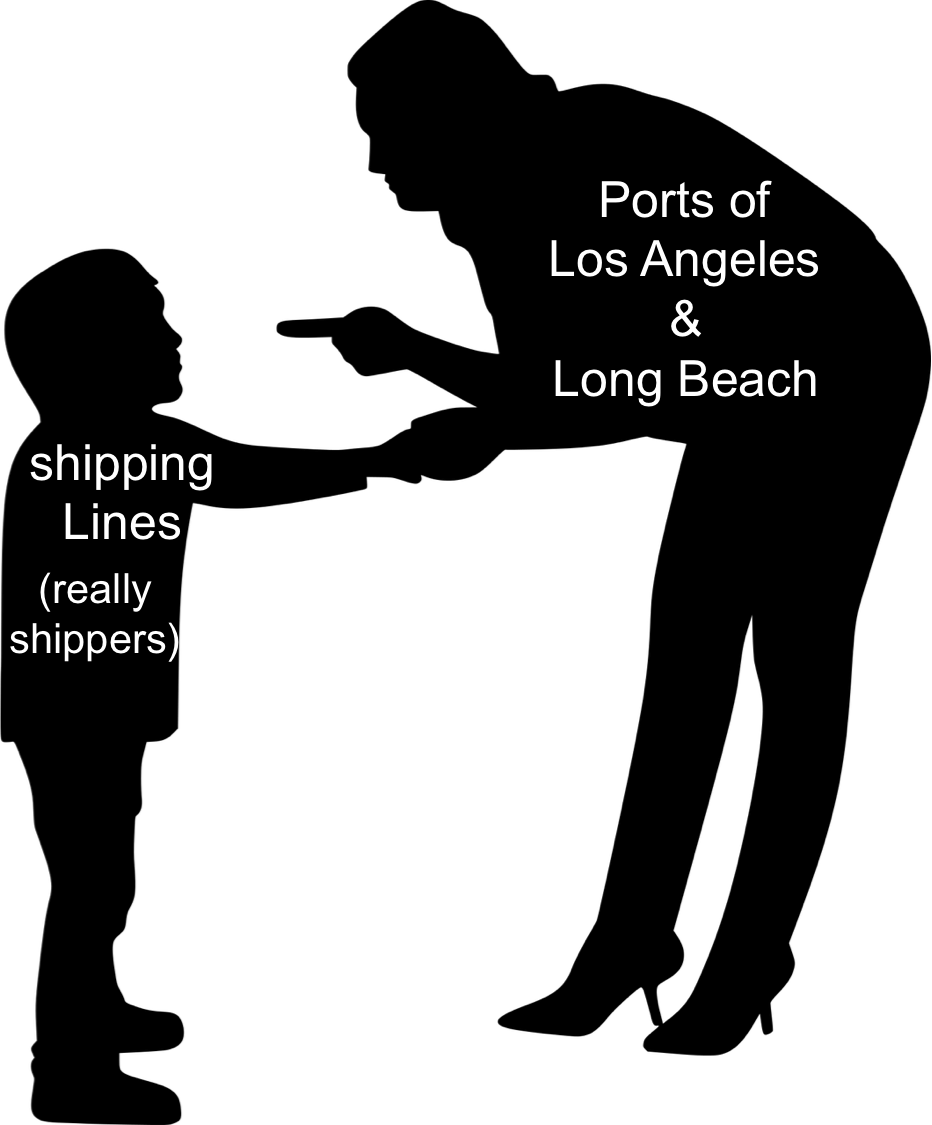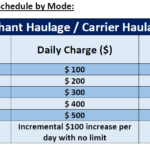Ports of LA & LB Keep Resetting Countdown Until You’re in Trouble
The Ports of Los Angeles and Long Beach announced another postponement in the assessment of the enormous fees they originally announced were going into effect on November 1st. When announced, the fees were supposed to first be assessed on November 15th. Instead, each week when the fees were supposed to actually be charged to ocean freight carriers, who would pass the fees on to shippers, the ports announced postponement of the fees.
This is the fourth such postponement.

It’s like the mom who doesn’t want to actually punish her children but wants them to do what she says. “Three… two… one.” These countdowns tend to be effective with children at first, but, inevitably, they always get tested. If the children don’t move and the mom just starts the countdown over, it doesn’t take long for the kids to think the punishment will never come.
At this point, I doubt there are many who believe the Ports of Los Angeles and Long Beach will actually assess these enormous fees they’ve been threatening since late October. However, the countdown may have had the desired effect.
The ports say there has been a combined decrease of 37% in “aging” cargo at the docks. Oh, cargo grows up too fast, doesn’t it?
How much of that is due to the threat of these fees is unknown, but like I said, the threatened fees are enormous:
They’re not like being grounded for a couple days or losing your allowance for the week. The fees start at $100 per day per container that dwells too long at the terminals. Each day, the fee would be increased by $100 and added cumulatively to the fees for the previous days. So a container that stayed three days too long would have a cumulative fee of $600.
For containers moving from the port by rail, these fees would start on day six that the shipping container remained on the docks. For cargo containers moving by truck, the fees would start on the ninth day.
I guess the movement that has happened, apparently from the ports’ countdowns until shipping lines (but really shippers) get in trouble, has been enough to satisfy the Ports of Los Angeles and Long Beach. However, they have not given any numbers of expectations for how much dwelling cargo would or should be moved or reduced by the time the fees were supposed to be assessed nor have they given any comparison numbers to see how this reduction compares to reductions during port congestion or this time of year.
An added bonus to the whole situation for the ports is they get to lay blame for their severe congestion completely on others – and shipping lines, along with several others, certainly bear significant responsibility – as if the Ports of Los Angeles and Long Beach played no role in the congestion problems that have plagued them.
Still, it would be nice to hear someone say, “Here’s the role I/we played in the problem.” Outlandish dreams aside, it looks like we get to wait until December 13th for the ports to restart their countdown until you’re in trouble, shippers.
Here’s the postponement announcement the Port of Long Beach published yesterday:
December 6, 2021
Long Beach, Los Angeles will continue to monitor progress in cargo flow on terminals
The Port of Long Beach and the Port of Los Angeles announced today that consideration of the “Container Dwell Fee” would be held off another week, until Dec. 13.
Since the fee was announced on Oct. 25, the twin ports have seen a combined decline of 37% in aging cargo on the docks. The executive directors of both ports will reassess fee implementation after another week of monitoring data.
Under the temporary policy approved Oct. 29 by the Harbor Commissions of both ports, ocean carriers can be charged for each import container that falls into one of two categories: In the case of containers scheduled to move by truck, ocean carriers could be charged for every container dwelling nine days or more. For containers moving by rail, ocean carriers could be charged if a container has dwelled for six days or more. Currently, no date has been set to start the count with respect to container dwell time.
The ports plan to charge ocean carriers in these two categories $100 per container, increasing in $100 increments per container per day until the container leaves the terminal.
Before the pandemic-induced import surge began in mid-2020, on average, containers for local delivery remained on container terminals under four days, while containers destined for trains dwelled less than two days.
Any fees collected from dwelling cargo will be reinvested for programs designed to enhance efficiency, accelerate cargo velocity and address congestion impacts.
The policy was developed in coordination with the Biden-Harris Supply Chain Disruptions Task Force, U.S. Department of Transportation and multiple supply chain stakeholders.




